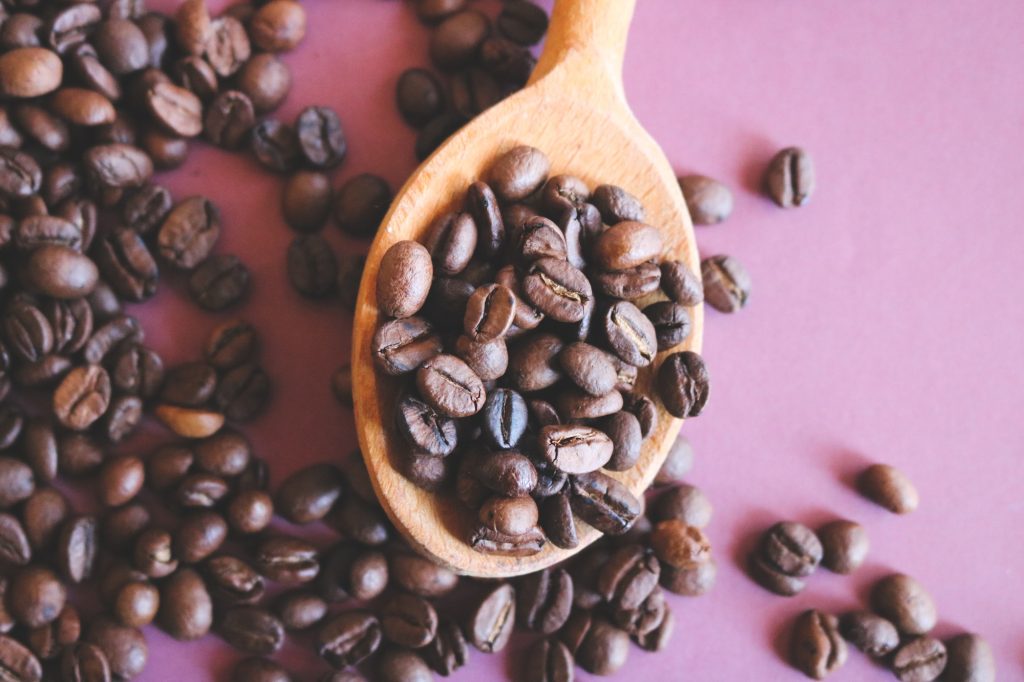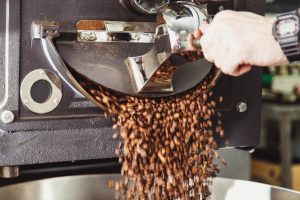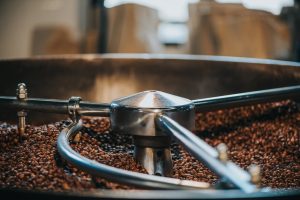
Coffee is more than a beverage—it represents an art, a science, and a daily ritual that connects tradition with innovation. This article explores the intricacies of coffee from seed to cup, delving into the origins, types, and brewing techniques that transform premium beans into an extraordinary experience. With a focus on quality, sustainability, and the latest innovations in the industry, readers will gain a comprehensive understanding of how the right coffee beans can elevate every sip.
Understanding Coffee
Coffee is produced from the seed of the Coffea plant, encased within a fruit known as the coffee cherry. Much like any fruit that guards its seed, the coffee cherry plays a crucial role in protecting the bean until it undergoes harvesting and processing. While the industry primarily revolves around two dominant varieties—Arabica and Robusta—other lesser-known species such as Liberica and Excelsa also contribute to the diverse coffee landscape, though to a much smaller extent.
The Coffea Plant and Its Fruits
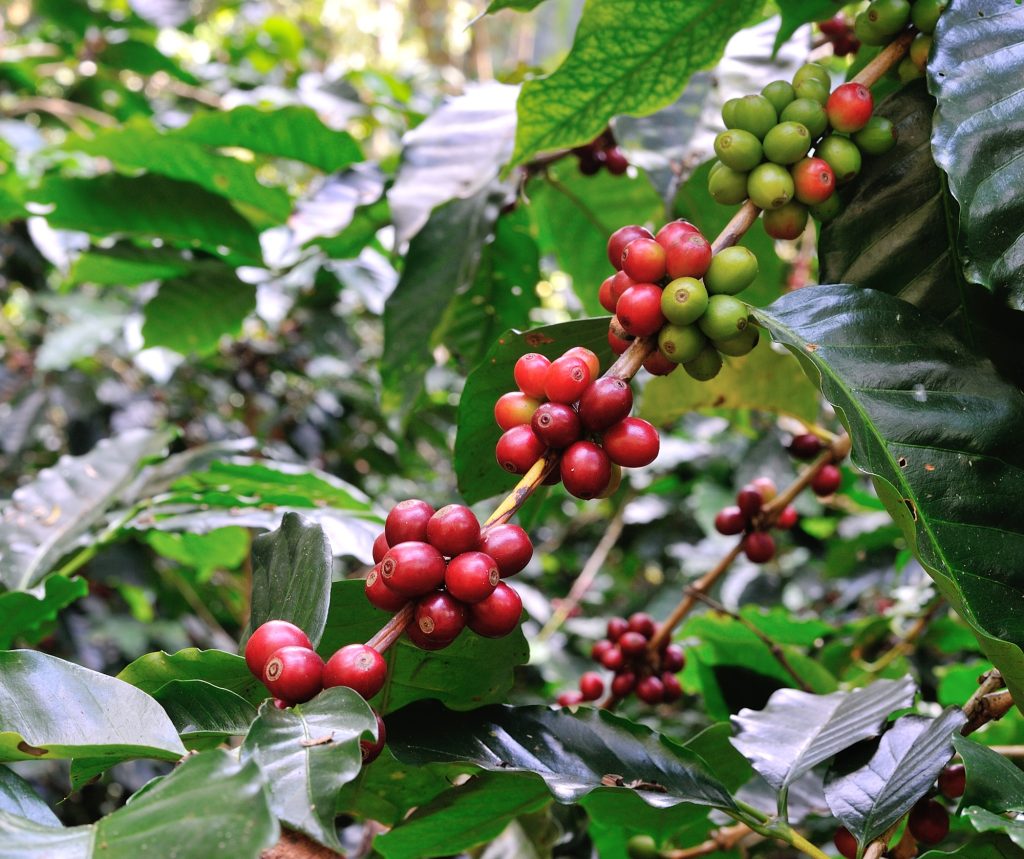
The Coffea plant thrives in tropical climates and is cultivated in regions where altitude, temperature, and soil quality converge to create optimal growing conditions. The coffee cherry, with its vibrant color and unique structure, not only shelters the bean but also influences its development. As the fruit ripens, enzymes within the cherry initiate chemical processes that later affect the flavor profile of the roasted bean.
Varieties: Arabica vs. Robusta
A critical distinction within the coffee world is found between Arabica and Robusta beans. Arabica beans, known for their delicate and multifaceted flavors, typically contain 0.8–1.4% caffeine. They are grown in higher-altitude regions where slower maturation leads to a more concentrated flavor and aroma. In contrast, Robusta beans offer a stronger, more robust taste with a caffeine content ranging from 1.7–4.0%. Their resilience and distinctive profile make them a popular choice in blends and for those seeking a more pronounced caffeine kick.
Types of Coffee
Single Origin Coffee
Single origin coffee is defined by its source: beans that come from a single region, estate, or even a single farm. This specificity allows the unique environmental factors of the region—such as soil composition, microclimate, and altitude—to imprint distinctive flavor notes on the beans. Such coffees often provide a narrative of their place of origin, inviting drinkers to explore regional characteristics with every cup.
- Distinct Regional Flavors: Beans from regions like Ethiopia’s Yirgacheffe or Colombia’s Supremo impart unique tasting notes—ranging from bright acidity and floral nuances to deeper, chocolatey undertones.
- Artisanal Roasting: Roasters often tailor their methods to highlight a bean’s natural qualities, using techniques that enhance the subtle flavors derived from its terroir.
- Cultural and Historical Connection: Enjoying a cup of single origin coffee is akin to experiencing the story of the land and the hands that cultivated it. It provides insight into traditional farming practices and local heritage.
Beyond Single Origin: Blends and Their Role
While single origin coffees provide a pure representation of a region’s characteristics, blends also hold significant appeal. Expert roasters create blends to balance contrasting flavor notes, resulting in a harmonious cup that appeals to a wider audience. Blends allow for consistency, which is highly valued in commercial settings, yet they sometimes sacrifice the unique story that single origin coffees tell.
Whole Bean Coffee Benefits
Choosing whole bean coffee ensures superior freshness and versatility. Unlike pre-ground coffee, whole beans retain their aromatic compounds until the moment they are ground, ensuring that every extraction yields maximum flavor.
Freshness and Flavor Preservation
Once coffee is ground, its surface area increases dramatically, exposing it to oxygen and leading to a rapid degradation of essential oils and volatile compounds. Grinding beans immediately before brewing is a proven method to preserve these delicate components, thereby delivering a more robust and aromatic cup.
- Enhanced Freshness: Whole beans maintain their integrity longer, allowing for greater control over flavor preservation.
- Customizable Grinding: The ability to grind beans to a precise consistency ensures optimal extraction tailored to various brewing methods—from a coarse grind for French press to a fine grind for espresso.
Economic and Practical Advantages
Purchasing whole beans also offers economic benefits. Buying in bulk not only reduces cost per cup but also provides the flexibility to adjust grind size based on different brewing techniques. Additionally, whole beans are easier to store properly, minimizing the risk of flavor loss due to oxidation.
Coffee Bean Origins
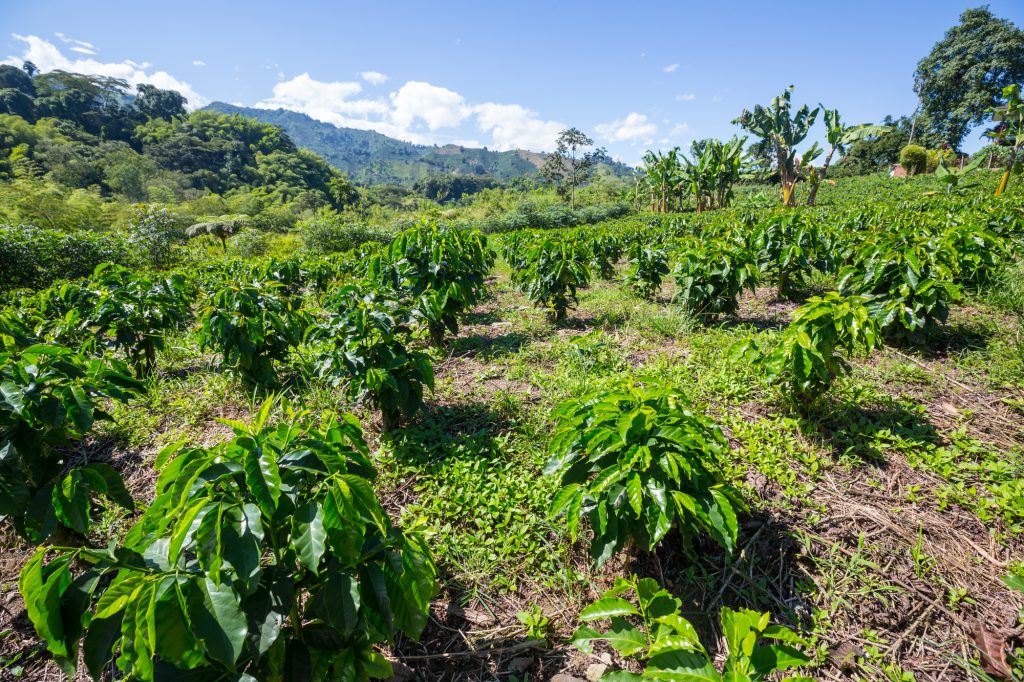
The origins of coffee beans have a profound influence on their flavor profile and overall quality. Environmental conditions, such as altitude, temperature, and soil composition, all contribute to the final taste that emerges after roasting.
The Impact of Altitude and Climate
Beans cultivated at higher altitudes develop more slowly due to cooler temperatures. This slower maturation process allows the beans to accumulate complex sugars and acids, resulting in a concentrated and nuanced flavor profile. Regions known for high-altitude coffee cultivation include East Africa, Latin America, and select areas in the Pacific. These regions are celebrated not only for the quality of their Arabica beans but also for the distinctive character that altitude imparts.
Ethical Sourcing and Sustainable Practices
In recent years, the emphasis on ethical sourcing has transformed the coffee industry. Many premium coffee producers now adhere to fair trade and direct trade practices, ensuring that farmers receive fair compensation for their work. Such practices promote sustainable agriculture and community development, which in turn supports the production of high-quality beans.
- Fair Trade and Direct Trade: These initiatives help maintain transparency in the supply chain, fostering relationships built on trust and mutual benefit.
- Sustainability Certifications: Certifications such as Organic, Rainforest Alliance, and UTZ provide consumers with assurance that the coffee is produced with environmental and social responsibility in mind.
- Quality Control: Ethical sourcing often correlates with rigorous quality control measures, ensuring that only the best beans make it to the roaster.
Regional Highlights
Each coffee-growing region offers a unique narrative. For instance, the rich volcanic soils of Central America contribute to beans with bright acidity and fruity undertones, while the ancient coffee forests of Ethiopia produce beans renowned for their complex, tea-like qualities. These regional stories enhance the experience of coffee drinking, turning each cup into a journey across continents.
Selecting the Best Coffee Beans
Selecting premium coffee beans involves more than just reading a label—it requires an understanding of the factors that influence flavor and quality. Whether you are a seasoned aficionado or a curious newcomer, the following criteria can guide your choices:
Prioritizing Freshness
The roast date is a critical indicator of freshness. Coffee is at its peak flavor within a few weeks of roasting, so beans that have been roasted to order or come with a recent roast date should be prioritized. Freshness not only ensures a richer flavor but also enhances the aromatic profile of the brew.
Ethical and Sustainable Sourcing
As awareness of ethical issues in coffee production grows, many consumers are now opting for beans sourced from fair trade or direct trade farms. Look for certifications that indicate adherence to sustainable practices, ensuring that the beans you enjoy support environmentally friendly farming and equitable trade practices.
Understanding Flavor Profiles
Coffee tasting, or “cupping,” is a practice that can significantly inform your bean selection. Professional cuppers evaluate beans based on aroma, acidity, body, and aftertaste. Familiarity with these attributes can help you choose beans that match your flavor preferences. Whether you favor a bright, fruity cup or a deep, chocolatey brew, understanding these nuances will lead to more informed purchasing decisions.
Additional Considerations
- Bean Density and Size: These factors can affect the extraction process. Denser beans often yield a more concentrated flavor.
- Roast Level: Light, medium, and dark roasts each offer distinct profiles. Experimenting with different roast levels can help you find the perfect match for your brewing method and taste.
- Storage Recommendations: Ensure that the beans are packaged in a way that preserves their freshness, such as resealable bags with one-way valves.
Brewing with High-Quality Coffee

The art of brewing coffee is an exercise in precision and experimentation. Even the highest quality beans require the right techniques to fully unlock their potential. The following guidelines will assist in crafting an exceptional cup:
Freshly Roasted and Ground
The moment between grinding and brewing is critical. Once ground, coffee begins to oxidize, which can dull the flavor. For the best results, grind your beans immediately before brewing. This practice ensures that the essential oils and aromatic compounds are preserved, leading to a more vibrant and flavorful cup.
Experimenting with Brewing Methods
Different brewing methods extract flavors in unique ways. While traditional drip coffee remains popular, alternatives such as French press, pour-over, espresso, and cold brew each have their own merits. Experimentation allows you to discover which method best highlights the distinctive qualities of your chosen beans.
- Drip Brewing: Known for its convenience and consistency, drip brewing is a staple in many households and offices.
- French Press: This method emphasizes body and richness, extracting oils that contribute to a fuller cup.
- Espresso: Concentrated and intense, espresso brewing demands a fine grind and precise pressure, resulting in a bold and complex shot.
- Cold Brew: With a smooth, mellow profile, cold brew offers a refreshing alternative that highlights the bean’s subtler flavor notes.
The Importance of Water Quality and Temperature
Water quality is an often-overlooked component in brewing. Using filtered water free from impurities ensures that no off-flavors interfere with the delicate profile of your coffee. Equally important is water temperature. Generally, water heated between 195°F and 205°F (90°C to 96°C) is ideal for extraction. Temperatures outside this range can lead to under-extraction or over-extraction, which may compromise the final taste.
Storage and Equipment
Proper storage of coffee beans is vital. Beans should be kept in airtight containers, away from light, moisture, and heat to maintain their freshness. Additionally, investing in high-quality brewing equipment—such as a reliable grinder and a temperature-controlled kettle—ensures that you can consistently reproduce an exceptional cup of coffee.
Advanced Brewing Techniques
For enthusiasts eager to delve deeper, advanced techniques such as the use of precision scales for measuring coffee-to-water ratios and the exploration of immersion brewing methods can further refine the process. These practices, often embraced by specialty coffee bars, enable a level of control that can transform everyday brewing into a refined ritual.
Emerging Trends and Innovations
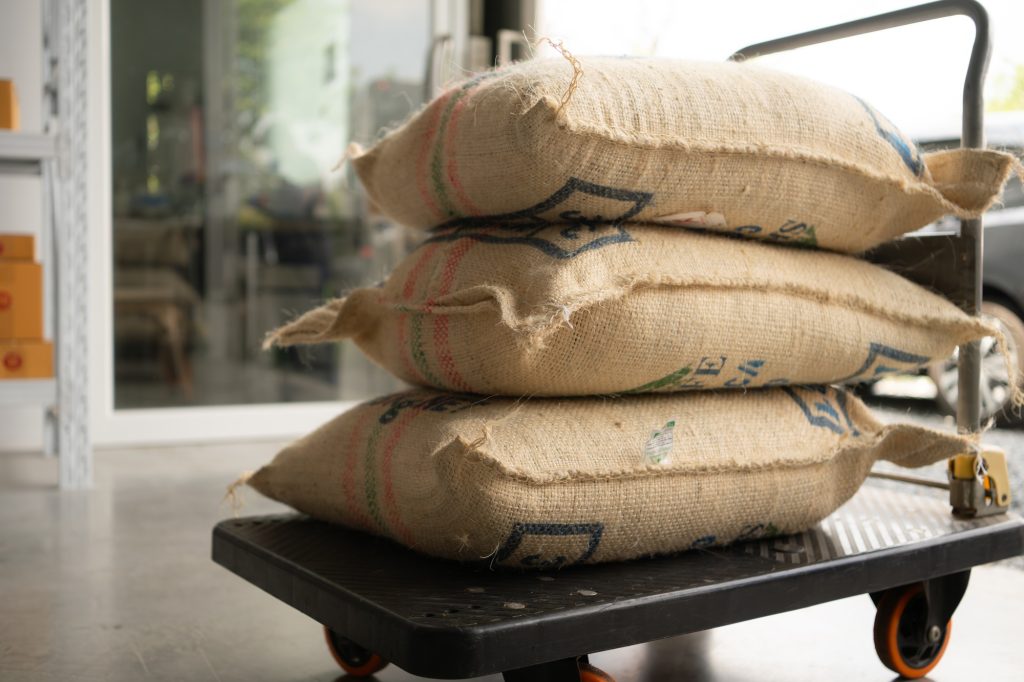
The specialty coffee industry continues to evolve, driven by technological advancements, environmental concerns, and changing consumer preferences. Several emerging trends are reshaping how coffee is produced, roasted, and enjoyed.
Precision Roasting Technology
Innovations in roasting technology now allow for unparalleled precision in developing roast profiles. Modern roasters incorporate sensors and data analytics to monitor temperature, airflow, and time, ensuring that each batch is roasted consistently. This precision not only optimizes flavor extraction but also enhances the ability to tailor roasts to specific bean varieties.
Sustainability and Ethical Practices
With growing consumer awareness regarding environmental issues, sustainability has become a central focus. Coffee producers are increasingly adopting eco-friendly practices—from organic farming and water conservation techniques to biodegradable packaging solutions. These measures not only minimize the ecological footprint but also ensure the long-term viability of coffee cultivation. Sustainability certifications continue to rise in prominence, guiding consumers toward choices that support both quality and ethical responsibility.
Alternative Brewing Innovations
The exploration of new brewing methods has led to a surge in alternative techniques. Nitro coffee, which infuses cold brew with nitrogen gas, offers a creamy, stout-like texture that challenges traditional flavor expectations. Other innovations, such as vacuum brewing and precision-controlled pour-over devices, continue to expand the boundaries of what is possible in coffee extraction.
Smart Technology Integration
Smart brewing devices are now available that integrate technology with traditional methods. App-connected coffee makers and temperature-controlled kettles allow for meticulous control over brewing variables. This convergence of technology and culinary art empowers consumers to fine-tune their brewing process, resulting in a cup of coffee that is both consistently excellent and tailored to individual preferences.
The Role of Data and Machine Learning
Data-driven approaches are beginning to influence coffee production from farm to cup. Machine learning algorithms are being used to analyze environmental data, predict optimal harvest times, and even adjust roasting profiles in real time. This scientific approach to coffee production ensures that every step, from cultivation to brewing, is optimized for quality and consistency.
Redefine Your Coffee Ritual
Transform your coffee ritual by embracing quality, sustainability, and innovation. Every cup becomes an experience when it begins with beans that have been carefully selected, ethically sourced, and expertly roasted to capture their natural complexity. Reimagine your morning routine as more than just a habit—it becomes a celebration of craftsmanship, flavor, and tradition.
Imagine starting your day with a brew that not only awakens your senses but also tells a story—a narrative of high-altitude farms, artisanal roasting techniques, and sustainable practices that support communities around the world. Such a cup is a testament to the convergence of art and science.
By investing in premium beans and refining your brewing process, you’re not merely making coffee; you’re crafting an experience that honors the heritage of the bean and the expertise of those who cultivate it. Consider every detail—from ethical sourcing and innovative roasting technologies to advanced brewing methods—as part of a journey toward a richer, more satisfying coffee experience. Whether you are a seasoned connoisseur or a curious explorer, continual learning and experimentation are key to perfecting your cup.
Embrace the art and science of coffee. Let your daily ritual become a moment of mindfulness, a celebration of flavor, and an opportunity to connect with the origins of your brew. Your journey toward the ultimate coffee experience begins with a single step—an exploration of quality and passion that transforms every sip into an extraordinary moment.
Ready to experience the pinnacle of coffee excellence? Explore our curated selection of exceptional, ethically sourced coffee beans at Daily Grind Roastery and take the first step toward transforming your everyday coffee routine into a ritual of discovery, quality, and unparalleled flavor.

